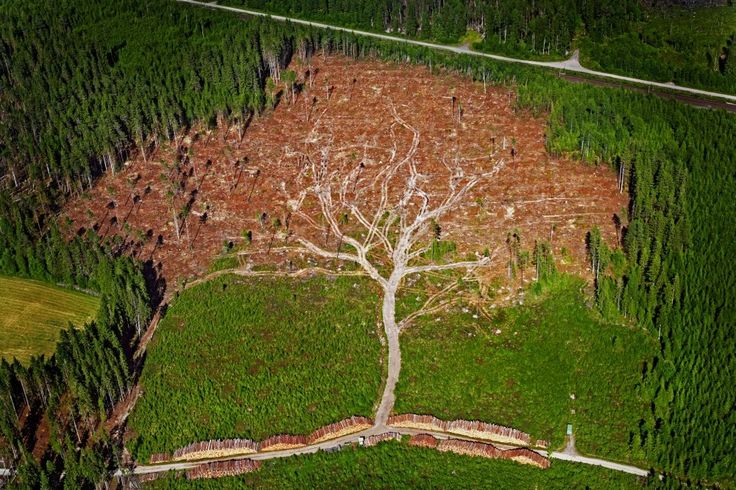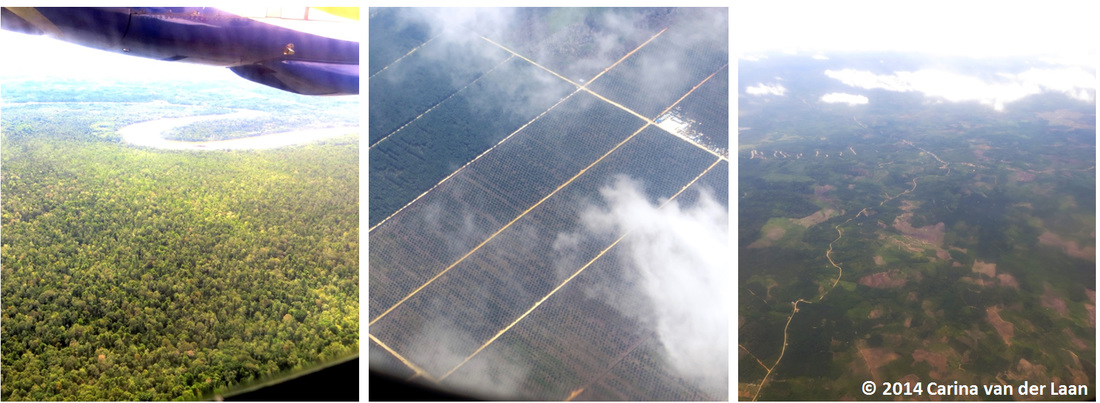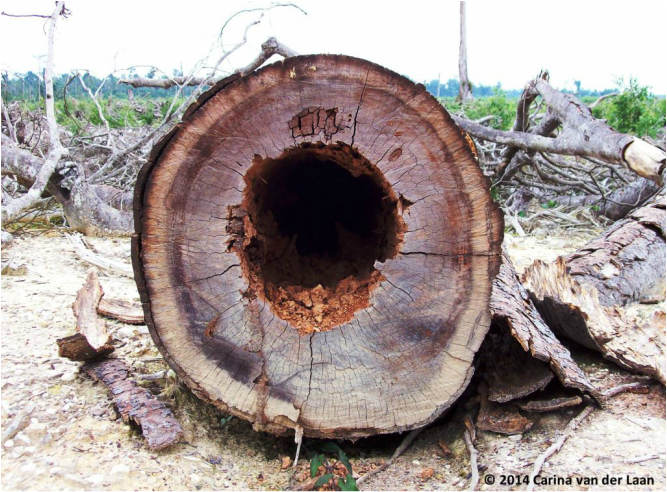As a species we face big challenges such as over population, climate change, and inequality (just to name a few). The complexity imbedded in these challenges makes the quest for solutions a multidisciplinary approach. The opportunity to discuss with people from other (knowledge) domains about these topics is the main reason I decided to participate in this blog.
Technologies to produce renewable energy, energy policy, bioenergy markets development, and methods for energy system analysis will, I expect, be central of the blog posts. Although I also expect to be posting on a lot of other issues such as: Universal Darwinism, economics, and complex adaptive systems.
In fact, let me start this blog off with a picture taken by Jocke Berglund after Hurricane Gudrun thundered across southern Sweden in January 2005 leaving 100000 people isolated and without electricity (follow this link). The devastation’s oak tree – shape is the result of the storm and the impact on the soil by forestry industry activities. What does this picture tell you?



 RSS Feed
RSS Feed
